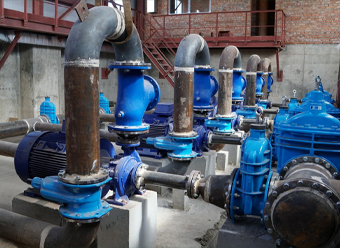Shona
- Afrikaans
- Albanian
- Amharic
- Arabic
- Armenian
- Azerbaijani
- Basque
- Belarusian
- Bengali
- Bosnian
- Bulgarian
- Catalan
- Cebuano
- Corsican
- Croatian
- Czech
- Danish
- Dutch
- English
- Esperanto
- Estonian
- Finnish
- French
- Frisian
- Galician
- Georgian
- German
- Greek
- Gujarati
- Haitian Creole
- hausa
- hawaiian
- Hebrew
- Hindi
- Miao
- Hungarian
- Icelandic
- igbo
- Indonesian
- irish
- Italian
- Japanese
- Javanese
- Kannada
- kazakh
- Khmer
- Rwandese
- Korean
- Kurdish
- Kyrgyz
- Lao
- Latin
- Latvian
- Lithuanian
- Luxembourgish
- Macedonian
- Malgashi
- Malay
- Malayalam
- Maltese
- Maori
- Marathi
- Mongolian
- Myanmar
- Nepali
- Norwegian
- Norwegian
- Occitan
- Pashto
- Persian
- Polish
- Portuguese
- Punjabi
- Romanian
- Russian
- Samoan
- Scottish Gaelic
- Serbian
- Sesotho
- Shona
- Sindhi
- Sinhala
- Slovak
- Slovenian
- Somali
- Spanish
- Sundanese
- Swahili
- Swedish
- Tagalog
- Tajik
- Tamil
- Tatar
- Telugu
- Thai
- Turkish
- Turkmen
- Ukrainian
- Urdu
- Uighur
- Uzbek
- Vietnamese
- Welsh
- Bantu
- Yiddish
- Yoruba
- Zulu
Telephone: +86 13120555503
Email: frank@cypump.com
Nov . 30, 2024 08:56 Back to list
ih chemical centrifugal pump price
The Cost of IH Chemical Centrifugal Pumps An In-Depth Analysis
Centrifugal pumps are indispensable in various industrial applications, particularly in the chemical industry, where processing and transporting fluids efficiently and safely are paramount. Among these, the IH series of chemical centrifugal pumps have garnered attention for their robust design, high efficiency, and versatility. However, potential buyers often have questions regarding the price of IH pumps. In this article, we will explore the factors affecting the price of IH chemical centrifugal pumps, typical price ranges, and insights into making an informed purchasing decision.
Understanding IH Chemical Centrifugal Pumps
The IH series pumps are designed to handle a wide range of fluids, including corrosive and abrasive materials, making them suitable for various applications such as chemical processing, oil refining, and wastewater treatment. These pumps are characterized by their horizontal structure, which facilitates easy maintenance and installation.
Factors Influencing the Price
1. Material Construction The materials used in the construction of IH pumps significantly affect their price. Pumps fabricated from high-quality stainless steel or specialized alloys designed to resist corrosion and wear will typically command higher prices than those made from standard carbon steel.
2. Pump Size and Capacity The size (flow rate and head) of the pump directly influences its cost. Larger pumps with higher capacity specifications are generally more expensive. Buyers need to align their requirements with the specifications to avoid over- or under-investing.
3. Customization and Options Many manufacturers offer customization options tailored to specific operational environments. Features such as different impeller designs, seal types, and variable speed drives can elevate the base price of a pump, depending on the complexity of the modifications.
4. Brand and Manufacturer Reputation Well-established brands often charge a premium for their products. This cost reflects not only the quality of the product but also the level of customer service and warranty typically associated with more reputable manufacturers.
5. Market Demand and Supply Prices can fluctuate based on market conditions. High demand for chemical pumps or disruptions in the supply chain (e.g., due to global situations impacting manufacturing and shipping) can lead to increased prices.
Typical Price Ranges
ih chemical centrifugal pump price

On average, the price of an IH chemical centrifugal pump can range from $1,000 to over $10,000, depending on the factors mentioned above. Basic models with lower specifications may start around $1,000 to $3,000, while high-capacity, specialized pumps could easily exceed $10,000. It is crucial for buyers to obtain quotes from multiple manufacturers and consider not only the purchase price but also potential long-term operational costs.
Making an Informed Decision
When investing in an IH chemical centrifugal pump, consider the following steps to ensure a wise purchase
1. Evaluate Your Needs Identify the specific requirements of your application, including the types of fluids to be pumped, required flow rates, and any environmental considerations.
2. Research Manufacturers Look into various manufacturers, focusing on their reputation, customer reviews, and warranty offers. Engaging with those who have previous experience with the pumps can provide valuable insights.
3. Request Quotes Obtain quotes from multiple suppliers, comparing the prices along with the features and specifications offered.
4. Consider Total Cost of Ownership Factor in not just the purchase price but also installation costs, maintenance, and potential downtime.
5. Ask About Support and Service Options Quality after-sales service can significantly influence the longevity and reliability of your pump. Ensure that the manufacturer or distributor provides adequate support.
Conclusion
In summary, the price of IH chemical centrifugal pumps is influenced by a myriad of factors including material, size, brand reputation, and market trends. While prices may vary widely, understanding these influences can help buyers make informed decisions that align with their operational needs and budget. By evaluating all available options and considering long-term costs, industries can ensure they choose the right pump for their specific applications.
-
ISG Series Vertical Pipeline Pump- Chi Yuan Pumps Co., LTD.|High Efficiency&Compact Design
NewsAug.02,2025
-
Heavy-Duty Mining Sludge Pumps - Wear-Resistant Slurry Handling
NewsAug.02,2025
-
Horizontal Split Case Pump with GPT-4 Turbo | High Efficiency
NewsAug.01,2025
-
ISG Series Pipeline Pump - Chi Yuan Pumps | High Efficiency, Durable Design
NewsAug.01,2025
-
Advanced Flue Gas Desulfurization Pump with GPT-4 Turbo | Durable & Efficient
NewsJul.31,2025
-
ISG Series Vertical Pipeline Pump - Chi Yuan Pumps | Advanced Hydraulic Design&Durable Construction
NewsJul.31,2025










